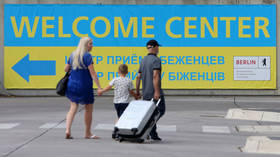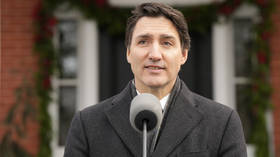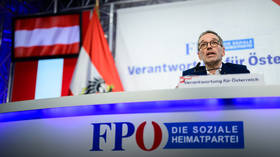Germany’s Scholz wants Ukrainian refugees working ASAP

German Chancellor Olaf Scholz has said he wants as many Ukrainian refugees as possible in the country to start work and dismissed criticisms suggesting that his government’s efforts to bolster employment among these recent arrivals have failed.
Europe’s economic powerhouse has emerged as a prime destination for Ukrainian refugees in the EU since the conflict between Moscow and Kiev escalated in February 2022. According to various estimates, more than a million people from the Eastern European country are currently residing in Germany.
In late October, Stern magazine estimated that approximately 720,000 Ukrainians were receiving ‘Burgergeld’, or citizen’s benefits, reportedly costing the German taxpayers €539 million per month.
During a Q&A session in the German parliament on Wednesday, an opposition MP from the Christian Democratic Union (CDU) called into question the effectiveness of the government’s ‘Job Turbo’ employment scheme, aimed at Ukrainian refugees in particular. Scholz responded by claiming that the initiative has raised the number of working refugees, while acknowledging that “this cannot suffice yet.”
The chancellor stated that “so many [refugees] have been [staying] here for so long, and they must actually get started now.” He pointed out that he has discussed the issue at length with Vladimir Zelensky, who Scholz says is planning to “establish a Ukrainian agency in Germany and in Poland, which would support Ukrainians either in their return [home] or in employment in Germany.”
“We must look at ways to ensure that as many [Ukrainian refugees] as possible look for work after all the measures toward language acquisition and other things have taken place,” the chancellor concluded.
In September, Scholz had stated that “it is my wish that [Ukrainians] work.”
The following month, Stern, citing analysis by the Federal Audit Office, reported that the government’s ‘Job Turbo’ initiative had largely failed, accounting for “less than one percent of recruitments [among refugees] registered in 2024.”
The media outlet quoted the auditors’ analysis as highlighting “considerable deficiencies in job-centers’ integration efforts,” with counseling actually having been provided in around a third of the cases this year. This, in turn, has reportedly led to refugees increasingly dropping out of the integration courses.
Launched last October, Job Turbo was touted as a tool that could wean as many as 400,000 refugees, both from Ukraine and elsewhere, off government handouts.
According to Stern, as of June 2024, only 30% of Ukrainian refugees were employed in Germany – far below the figures recorded in neighboring countries.













